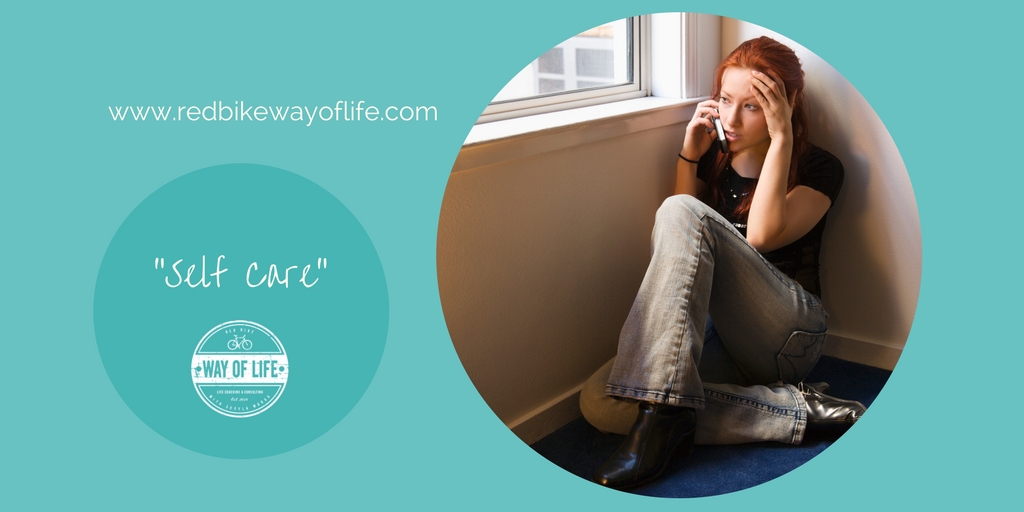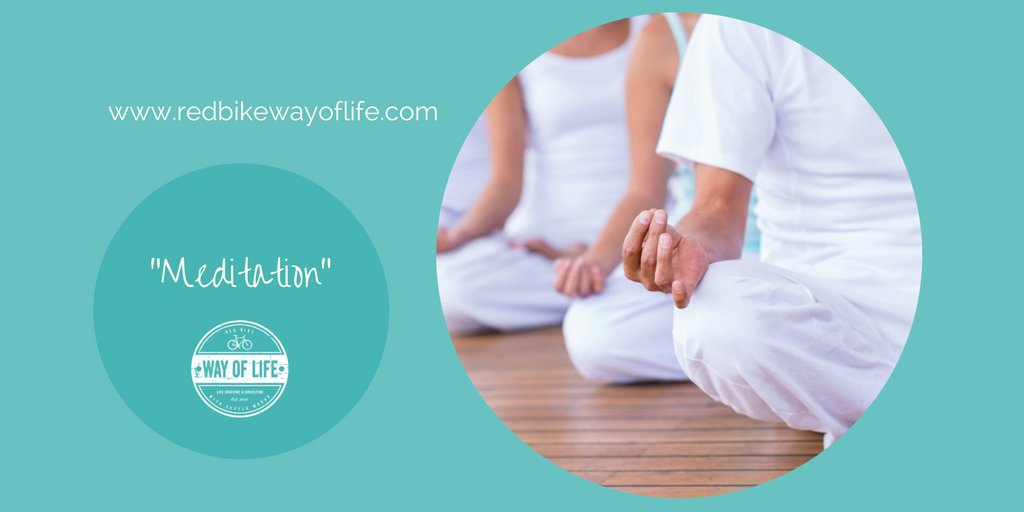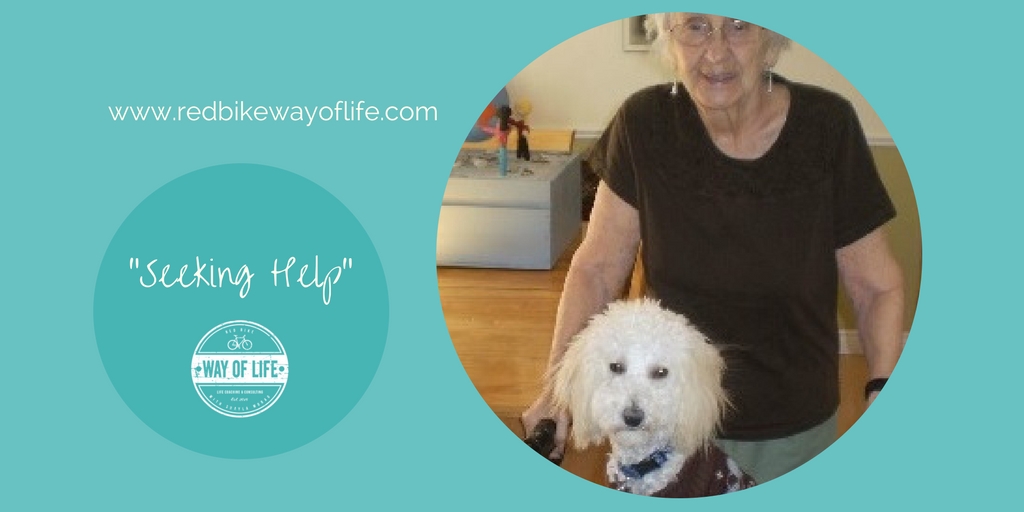
by Shayla Morag | Feb 27, 2018 | Grief, Self Care, Stress Management, The Red Bike Way
Going through loss and grief can make us feel numb at times. Sometimes our memory can become foggy and confused. There are many components of a good memory. The health of your brain is among the most important. It’s natural for memory to decline with age, but there are many ways to slow that decline. A poor memory can be frustrating for everyone involved. Below are 10 simple steps you can take to enhance your memory at any age. Boost your memory with these simple steps:
1. Change your diet. Research suggests that omega-3 fatty acids and an anti-inflammatory diet can enhance memory. Your diet affects all aspects of your body. Alter your diet and you alter your ability to store and retrieve memories. There are several versions of anti-inflammatory diets. Experiment and see which works best for you.
2. Manage stress. Stress is hard on your body, brain, and memory. Stress has been linked to decreases in memory. Set reasonable expectations for your life. Learn how to relax and avoid stress. Ensure that you’re getting enough leisure time
3. Get enough sleep. Scientists are still confused about what happens while we sleep, but it has been established that our brains don’t work as well when we’ve been deprived of sleep. One late night on the town will prove this fact to anyone. Get enough sleep and your memory will be enhanced.
- Stick to a regular sleep schedule.
- Avoid caffeine.
- Try taking a nap for a middle of the day pick-me-up.
4. Use repetition. It’s much more effective to expose yourself to something repeatedly than to attempt to learn it in one sitting. If you’re trying to learn French vocabulary words, six 5-minute sessions will be more beneficial than one 30-minute session. The popular flash card program, Anki, uses spaced repetition to aid memory.
5. Keep your mind active. Do something each day that requires a lot of brain activity. Reading, crossword puzzles, chess, and various brain teasers are effective at keeping your mind active and sharp. Avoid relying on just a single activity. Mix it up and hit your brain from every angle.
6. Be creative. Creativity uses different parts of the brain than the more analytical functions we typically perform. Paint, draw, learn an instrument, or write. Anything requiring creativity can be useful.
7. Exercise. Moving blood through your body and brain can boost memory. Obesity can lead to blood sugar and circulatory issues. Both can impair memory. You don’t have to pretend you’re training for the Olympics, but get your heart pumping for a few minutes each day.
8. Write it down. It’s easier to remember something if you write it down, instead of just hearing or reading it.
9. Say it aloud. Use all of your senses. Say it so that you can hear it. If you write it, read it aloud, and imagine it, it will be much easier to remember. Expose yourself to the information you wish to remember in a variety of ways.
10. Maintain healthy relationships. Some memory experts believe that relationships are the key to keeping your brain healthy and active. It has been discovered that those with the busiest social lives have the slowest declines in memory.
- Spend more time with family and friends.
- Make some new friends or join a club.
Even if you believe you’ve been plagued with a poor memory, it can be enhanced. Minimizing stress, challenging your brain on a regular basis, and getting sufficient sleep are a few of the steps that can be taken to improve memory function. It’s never too late to pay attention to your memory.

by Shayla Morag | Feb 26, 2018 | Handy Tips, Self Care, The Red Bike Way
Anxiety is part of the human condition. Try to find someone that never feels anxiety. Some people are more resistant to anxiety that others, but everyone can strengthen their ability to manage anxious feelings. Developing a high level of anxiety is a skill. Lowering anxiety is a skill, too. The key to managing anxiety is to begin minimizing it as soon as possible after it hits you. The more it builds, the more challenging it is to control.
Deal with anxiety quickly and easily:
1. Break your day into small chunks. Only worry about the small amount of time in front of you. If you’re sitting in a meeting at 9:00 AM, there’s no reason to worry about how you’re going to pay the electric bill or what you’re going to have for dinner. Take the day one minute at time and keep your attention on that minute.
2. Create a mantra and use it. Have a positive and uplifting phrase you repeat to yourself. You’ll eventually start to believe it and you’ll block any negative self-talk. “I’m happy and capable of handling any situation.” “My life is filled with joy and positive energy.”
3. Exercise.The quickest way to relieve anxiety is to exercise enough to sweat. A casual walk is better than nothing, but to get the greatest benefit, it’s necessary to get your heart beating hard.
4. Make use of distractions. Distractions never solve the underlying issue, but can provide relief. Watch a movie, play cards, or do a crossword. Spend time with a close friend. Give yourself a break and put your focus elsewhere.
5. Keep going. Anxiety occurs because some part of your brain is trying to stop you from taking action. It has learned that it can control you by making you feel miserable. You can minimize the anxiety you feel by plowing ahead. Your brain will learn that making you feel anxious doesn’t work.
6. Give yourself 20 minutes to worry each day. Schedule your worry time. You’ll find yourself less inclined to worry during the other 23-plus hours of the day.
7. Change your environment. Get out of your current environment and give yourself a change of scenery. Go to the park or spend some time at the coffee shop. Spend an hour window shopping. Shake things up a bit.
8. Spend time with your pet. If you have a dog, you already know how comforting they can be. Sit on the floor and have a heart-to-heart with your favorite pet. How could you not feel better?
9. Write in a journal. Get your anxiety out of your head and down on paper. There’s something cathartic about writing when you’re stressed. Make a habit of writing about your life each day.
10. Find the right scent. The right scent can be soothing. Take a trip to the candle store and find something that makes you feel good when you smell it
11. Find a hobby that requires concentration. It could be chess, playing the piano, or knitting. It doesn’t matter what the hobby is as long as you enjoy it and it commands your complete attention. It can be a great way to spend your down time.
12. Visualize. Visualize something positive. Daydream about Maui or remember a positive experience from the past. Imagine your perfect day.
Dealing with anxiety is important. Successful people are successful due to their ability to manage anxiety successfully. When you feel worry begin to build, deal with it immediately. A high level of anxiety is very challenging to manage. Develop a list of strategies that can be implemented quickly when anxiety first appears.

by Shayla Morag | Feb 15, 2018 | Meditation, Self Care, The Red Bike Way
Finding time to meditate can hold you back from beginning your practice. Maybe you try to carve out time, but doctor appointments and business trips get in the way. ?? You can’t find a free hour to sit down. While extended meditation has its benefits, you can also boost your mindfulness with brief breaks of a few minutes or less. Try these tips for calming your mind even on your busiest days.
Brief Meditations: How to Do It!
1. Focus on your breath. Pay attention to your breath as it enters and leaves your nostrils. Follow its path up and down your body. Notice how your abdomen and chest rise and fall when you inhale and exhale deeply
2. Scan your body. Search for areas of tension. Massage your stiff shoulders or hands as you imagine your breath warming and healing them.
3. Observe your thoughts. Check out what’s on your mind without making judgements. Let your mind slow down.
4. Embrace your feelings. You can meditate when you’re feeling content or dealing with major stress. Remember that your emotions are temporary and you decide how to respond to any situation.
5. Watch closely. Lock your eyes onto a chosen object. Pick a candle with a flickering flame or a tree bough swaying in the breeze.
Chant out loud. Fill your mind with a spiritual mantra or an inspiring saying of your own. Repeat it 3 times. Reach out and touch. Many religions use beads to count prayers and maybe even avoid falling asleep. Try wearing a bracelet or holding a charm in your palm as a trigger to bring your mind back to a beautiful and wholesome state.
Brief Meditations: When to Do It!
1. Adjust your commute. Look forward to red lights. Use traffic signals and stop signs as a reminder to breathe.
2. Take a break during meetings. You can stay up to date with your mind at office meetings the same way you check on phone calls and text messages. Ask yourself how you’re feeling while you’re looking to see if a client responded to your last message.
3. Intensify your workouts. Connect with your mind as you build up your body. Meditate for a few minutes on the treadmill or at the swimming pool.
4. Connect with your partner. Make a date with your spouse. Mediate together for a few minutes each morning or before bed.
5. Bond with your kids. Mindfulness exercises can be especially beneficial for children. Make your sessions fun by keeping them short and simple. Throw in some yoga poses, singing, and visualizations that will appeal to your child’s imagination.
6. Line up. Your daily life is probably full of long lines. Next time you’re queuing up for a blockbuster movie or rushing to mail a last-minute present at the post office, remember that meditation will help you pass the time without losing your spot.
7. Skip commercials. Do you enjoy watching 30 seconds of advertising before you can watch the video you clicked on? Hit the mute button, and enjoy the silence that surrounds you.
8. Consume consciously. Do you automatically reach for a donut or a margarita after a rough day? On the other hand, maybe you try to soothe yourself with a little retail therapy. Meditation could be a healthier and less expensive response to stress.
Let go of stress and boost your concentration with a quick meditation session. While instant weight loss products are often disappointing, you can enjoy greater peace of mind in just a few minutes a day. That’s a miracle worth celebrating.

by Shayla Morag | Feb 14, 2018 | Self Care, The Red Bike Way, Wise Words
On this Valentine’s Day, take some time to cherish who ‘you’ are and nurture in the beautiful light that you share freely with others. Do something special for yourself and know that you are loved even if you may feel alone. ???
Listen closely to your heart and follow the signs. What is your intuition telling you? During a get-away respite vacation to visit a dear friend in Florida, I was told by three different people, on three different occasions, to read three specific books by the late Louise L. Hay. People we come across in daily life can give us messages that we need to hear. These ‘You Can Heal Your Life’ books – chalked full of wise life-affirming words – have become well read and treasured on my bookshelf.
Do You Truly Know How to Love Yourself?

by Shayla Morag | Feb 09, 2018 | Caregiving, Safety, The Red Bike Way
I remember the day like it was yesterday. I had thought I had made my home safe from potential falls by removing all floor rugs, using flat metal joiners (when installing laminate flooring instead of the ones provided by the supplier), putting up chair railings, and installing grab bars. This fall involved my Mom slipping on a blanket she was holding in her arms. It had never crossed my mind that this was a possibility. Having a fractured hip (after already having two hip replacements) was obviously very painful for Mom. She couldn’t walk for a few months which involved changes with medications (resulting in severe hallucinations), and a major change with our regular routine. I was told by medical professionals that she would probably never walk again.
Having access to home physiotherapy was such a help as my Mom was able to get up and start exercising. We had the goal of wanting to drive around to see the Christmas lights which meant walking to the car. The saving grace was Mom’s daily task of taking our little dog for a ride on her walker around the house every day. He loved sitting on her walker and the focus was on ‘his” needs instead of the reality that Mom needed to stretch her legs. We did enjoy the Christmas lights by the way! ??

by Shayla Morag | Feb 07, 2018 | Change, Self Care, The Red Bike Way
Over 80% of New Year’s resolutions are abandoned within a week. If change were easy, we’d all be wealthy, fit, and happy. It’s frustrating when you know what you want to do, but you can’t get yourself to do it consistently. If the new behavior would obviously be of benefit, why isn’t that change easy to make?
Change is challenging for several reasons:
1. Habits are strong and pervasive. The average person has far more habits than they realize. Each morning, you wake up and follow the same routine. You take the same path to work. You think the same thoughts as you did the day before. Much of your day and night is a repeat of the last 500.
When you feel bored, you soothe yourself in the same 2-3 ways each time. You only eat a few foods regularly. You talk to the same people. Habits avoid thinking. They’re done automatically. Anything that minimizes thinking seems to be your brain’s preference. The fewer decisions, the better. To change, you must be certain that change is in your best interest. Otherwise, your habits will always win.
2. Change is hard because it’s uncomfortable. You already know how to lose 25 pounds or how to find a better job. But the thought of taking the actions necessary to accomplish those goals creates discomfort.
3. What you’re doing is already working, sort of. Your brain is preoccupied with your survival. Our brains are programmed to resist change, because what you’re doing is allowing you to live. Any change could potentially lead to death. You might be unhappy today, but you’re still alive! Most of us prefer misery than facing uncertainty.
4. You’ve tried to change in the past and failed. You’re no dummy. If you’ve tried to change several times and failed, part of you says, “Obviously, I can’t change. What’s the use in trying?”
It isn’t easy to change, but change is possible. The primary issue keeping you from following through on your plan to change is attempting to change too much, too soon. Smaller changes are easier to accomplish and to maintain.
How You Can Change! Change is possible with an effective approach:
1. Be prepared to change. Expect that change will be challenging. Your odds of success improve if you’re prepared. Have a plan.
2. Start small. To minimize the discomfort that change creates, only change a little each week. Meditating for two minutes each day is easier than starting with 60 minutes. The key is to get in the habit of doing the new behavior each day.
3. Have patience. It can take months to make a change permanent. It’s often quoted that a new habit requires 30 days to instill. That’s not true. Studies show that it can take anywhere from a few weeks to several months, depending on the habit and the person.
4. Be willing to change yourself and face the consequences. Changing yourself is scary, because you don’t know what the results will be. Accept that your life will change in some way. Discomfort isn’t always a bad thing.
5. Expect to relapse. Falling off the wagon is to be expected. Attempt to enhance your approach and keep going. Aim for 90% compliance. That’s all you need. Perfection is an illusion that will only serve to destroy your confidence.
Change requires patience with yourself. Understand why it’s so challenging to change and choose to make changes slowly and incrementally. Imagine how much you could change over a few years if you changed just a tiny amount each week. The results would be staggering! How much have you changed over the last few years? Give slow change a chance.







